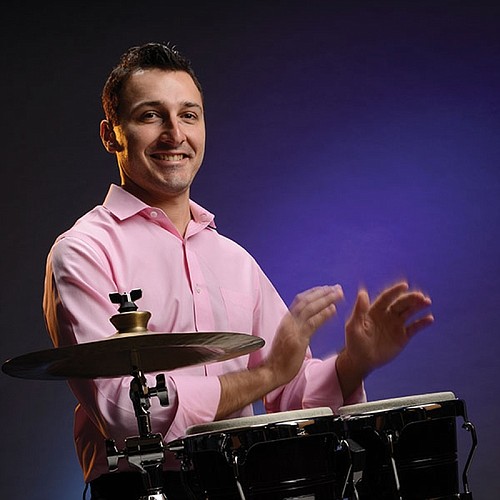- May 1, 2025
-
-
Loading

Loading

The musicians of the Sarasota Orchestra presented a pair of bookend concerts last week devoted to Music of Our Time: music written by composers born in the early to late 20th century. What we found in listening to the nine works, was a fascinating bridge between the romanticism of the late 19th century and the experimentation that took place in the 20th. Most interesting was the juxtaposition of Pure music (music that has no programmatic material) and Program music (works that tell a story or paint pictures in sound).
What we found was that the earlier the music was written in the 20th century, the more it went against the tradition of what came before it, and as time went on, composers began experimenting, not with modality and scales, but with the way traditional instruments are used. Even more, we found that most of the music written recently has become almost entirely programmatic in theme, and it led to a question: What is music?
Take the oldest piece on the programs, Anton Webern’s Six Bagatelles (offered Thursday) and a relatively new work by Francis Schwartz, “The Grey Road,” (performed Sunday). The Webern is pure music without a story while the Schwartz depicts war, death and horror. Neither piece is easy to take. The Webern, blessedly short, is an experiment in what was a new sound — atonality — invented by the composer’s mentors, Schoenberg and Berg. It’s one of those pieces that’s more interesting to play than to hear, but it was carried off well by violinists Christopher Takeda and Jennifer Best Takeda, violist Steven Laraia and cellist Nadine Trudel.
The Schwartz, a tour-de-force for solo tubist Jay Hunsberger, was played impeccably but didn’t come off as the gloomy, dour work Schwartz meant it to be. Titters were scattered through the audience as Hunsberger followed the musical instructions to stamp his feet and make gasping sounds. Fortunately, there were no “carefully chosen aromas” or “control of the hall’s temperature,” as the composer also requested to accompany the work.
Thursday’s program also included “TrainspOrt,” a fun and fascinating piece about a train ride by Theodor Burkali, played enthusiastically by bassoonist Fernando Traba and percussionists George Nickson and Bruce Lehman, and “Thirteen Ways,” an inventive work by Thomas Albert, based on the poem “Thirteen ways of looking at a blackbird,” by Wallace Stevens. Here, again, we have program music and, in the hands of Carmen Bannon, Calvin Falwell, Daniel Jordan, Chizuko Matsusaka, Nickson and Conor Hanick playing a variety of instruments, it took us on an emotional and fantastical ride on the wings of birds.
Perhaps the best known work on Thursday’s program was George Crumb’s brilliant “Vox balanae,” (Voice of the Whale) which is what music of our time is all about. Here we have experimentation with instruments imitating the sounds of the great whales but still carrying emotion, beauty and feeling so strong, so true, one doesn’t need a story to back it up. Flutist Betsy Traba (whose opening solo brought chills and tears to me), cellist Christopher Schnell and Jonathan Spivey, playing a prepared piano, did a masterful job with this well-known work that’s lasted the test of several decades.
In addition to the Schwartz piece for tuba, Sunday’s concert, which often centered around death, highlighted a pair of wondrous works: “Cadernos,” a bell-like piece by Andreia Pinto-Correia, played with understanding and clarity by Nickson on solo vibraphone, and “Death with Interruptions,” by Derek Bermel, performed with warmth and beauty by violinist Jennifer Best Takeda, cellist Christopher Schnell and pianist Jonathan Spivey.
Pinto-Correia made a return visit with her “Teatro de Marionetas,” a jazzy, rhythmic work depicting enormous puppets (imagine a T-Rex on wires) featuring Hunsberger and Aaron McCalla on tubas and Nickson on a drumset.
Sunday’s program concluded with “Immutable Dreams,” by Kati Agocs, a work for chamber ensemble conducted with precision by Nickson, that combined pure music with a program and left us with the impression we need to hear more of this composer.